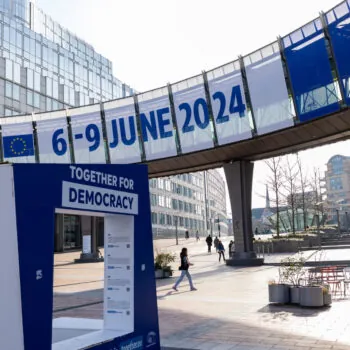In the first decade of the 20th Century, the social reformer Robert Moses set about exposing the “many streams and rivulets running out of New York’s treasury” to public scrutiny. A decade later the only scrutiny of public spending was Moses himself. He found that the democratic institutions and politicians of New York got in the way of his grand vision so he went around them.
By the late 1920s public spending in New York was scrutinised and diverted based on the interests of one man and his business empire and the result was financial ruin and gridlock. The extraordinary thing about the story of Moses’ rise is that it was unopposed and often supported by the politicians and officials he sidelined.
In last Wednesday’s Economic and Fiscal Outlook the Office for Budget Responsibility (OBR) issued a warning about the ‘Nissan deal’:
"On this occasion we asked specifically whether any contingent liabilities had been created in respect of assurances provided to Nissan and the Treasury declined to say."
The brief Treasury response to the OBR was printed in full on page 150:
"There is a standard process for departments to report to Parliament as and when they incur contingent liabilities. Any commitments incurring costs will be managed within existing overall DEL totals.”
In other words the costs we are liable for won’t be made public unless and until we incur them.
With OBR forecasts for business investment revised down by 4.7 percentage points in 2016 and 6.3 percentage points in 2017 (to 2.2% and 0.3% respectively) the likelihood of future bilateral deals (on the Nissan model) is growing. The Government’s negotiations with major manufacturers are crucial to the success of any future Brexit deal as there is no reasonable prospect of Parliament signing off on a deal rejected by major manufacturers; as the Chancellor Philip Hammond put it in his speech to Conservative Party Conference: “people didn’t vote on the 23rd of June to be poorer or less secure”.
Inevitably other manufacturers will demand bespoke deals to continue investing in the UK and they are likely to succeed. The proposal from Jaguar Land Rover on Thursday for a deal worth between £450m and £1bn has already receive the backing of the Secretary of State for Business, Energy and Industrial Strategy. Even if any contingent liabilities incurred in the Nissan deal amounts to no more than a small stream (£millions rather than £billions) running out of the UK treasury, by 2019 the sum of of every bespoke deal could amount a river large enough to do real damage to the public finances.
That wouldn’t necessarily matter if the chance of the event on which this liability is contingent were low. But in this case the event is the most likely outcome of Government policy. The Prime Minister’s preference may be for full market access but the fundamentals still point to negotiated market access sector-by-sector on a WTO, Canadian or Swiss model (see below).
It is in the short-term political interests of the Chancellor and the Prime Minister to keep this particular spigot-in-the-barrel deal away from public scrutiny for as long as possible. That is why we have the OBR – to counter the power of the Chancellor to frustrate Parliamentary scrutiny. Without sight of these deals Parliament cannot deliver proper scrutiny of the Government’s plans anymore than you could properly assess the value of house without a building survey.
Until the Treasury releases details of any contingent liabilities associated with Brexit to the OBR Parliament should view this for what it is: a deliberate effort to frustrate Parliamentary scrutiny of the Government’s plans for Brexit. These deals may be in the public interest. But the secrecy is not. A hundred years ago trust in the brilliance of one man ruined the finances of a great city, trust in ‘spreadsheet-Phil’ without scrutiny could do a lot worse.



